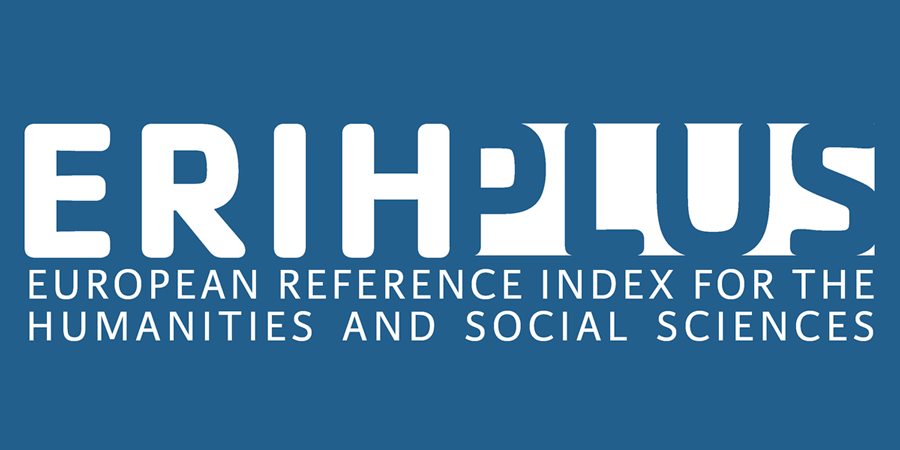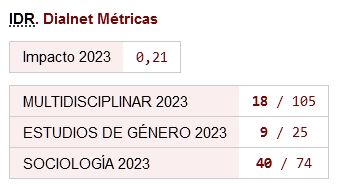The case-law of the ECtHR on human trafficking and the need to go back to the legal concepts of slavery, servitude and forced labour
DOI:
https://doi.org/10.46661/relies.5187Keywords:
THB, servitude, slavery, forced labour, sex workAbstract
The article proposes a review of the European Court of Human Rights case law regarding Trafficking
in Human Beings in the last 15 years, and highlights with concern the shift from discourses on
slavery, servitude and forced labor towards trafficking, a category that is unable to protect most of
THB victims. The focus is briefly put on three main decisions: Siliadin v. France (2005); Rantsev v.
Russia and Cyprus (2010); and S.M v. Croatia (2020). The analysis criticizes the concept of THB
employed by the ECHR, and insists on the need of using long-established international human rights
law categories, abandoning the wicked category of trafficking.
Downloads
References
Barrère Unzueta, M. (2016): “¿Vulnerabilidad vs. Subordiscriminación? Una mirada crítica a la expansión de la vulnerabilidad en detrimento de la perspectiva sistémica”, CEFD- Cuadernos electrónicos de filosofía del derecho, nº 34, pp. 17-34.
Barrère Unzueta, M. (2018): “Filosofías del derecho positivo. ¿qué derecho y qué discriminación? Una visión contra-hegemónica del derecho antidiscriminatorio”, Anuario de Filosofia del derecho, vol. XXXIV, pp. 11-41.
Barrère Unzueta, M. (2019): Feminismo y derecho. Fragmentos para un derecho antisubordiscriminatorio, Santiago de Chile: ediciones Olejnik.
Decisión Siliadin v. Francia de 26 de Julio de 2005, demanda nº 73316/01.
Decisión Opuz v. Turquía de 9 de junio de 2009, demanda nº 33401/02.
Decisión Ranstev v. Chipre y Rusia de 7 de enero de 2010, demanda nº 25965/04.
Decisión de inadmisión V.F. v. Francia de 29 de noviembre de 2011, demanda nº 7196/10.
Decisión L.E. v. Grecia de 21 de enero de 2016, demanda nº 71545/12.
Decisión de inadmisión G.J. v España de 21 de junio de 2016, demanda nº 59172/12.
Decisión S.M. v. Croacia de 25 de junio de 2020, demanda nº 60561/14.
EPRS (2016): The gender dimensions of Human trafficking, Brief, Member’s Research Office. https://www.europarl.europa.eu/RegData/etudes/BRIE/2016/577950/EPRS_BRI(2016)577950_EN.pdf (último acceso el 20 de noviembre de 2020).GRETA (2020): 9th General report GRETA activities, Abril 2020, https://rm.coe.int/9th-general-report-on-the-activities-of-greta-covering-the-period-from/16809e169e- (último acceso el 4 de julio de 2020).
Letsas, G. (2004): “The Truth in Autonomous Concepts: How to Interpret the ECHR”, EJIL, Vol. 15(2), pp. 279-305.
Mestre i Mestre, R. (2011): “La protección cuando se trata de trata em el Estado Español”, Revista Interdisciplinar da Mobilidade Humana, Ano XIX nº 37, pp. 27-42.
Mestre i Mestre, R. (2016a): “G.J. v. Spain and Access to Justice for Victims of Human Trafficking, https://strasbourgobservers.com/2016/09/01/g-j-v-spain-and-access-to-justice-for-victims-of-human-trafficking/ (último acceso el 20 de noviembre de 2020).
Mestre i Mestre, R. (2016b): “La protección de los derechos sociales por el Tribunal Europeo de Derechos Humanos”, CEFD- Cuadernos electrónicos de filosofía del derecho, nº 33, pp. 113-132.
Mestre i Mestre, R. (2019): “Apuntes rápidos sobre reducciones, confusiones y otras manipulaciones en torno a la trata de seres humanos. El ejemplo de G.J. vs. España” en B. Rodríguez Ruiz (coord.): Autonomía, género y derecho. Debates en torno al cuerpo de las mujeres, Valencia: Tirant lo Blanch, pp. 161-172.
Mestre i Mestre, R, E. Martín Díaz, C. Fernández Bessa, J.A. Brandariz García (2019): “Abolicionismo y prostitución: la gobernanza del simulacro”, CTX 12/11/2019.
Mestre i Mestre, R. y E. Martín Díaz (2019): “Sobre las distintas violencias contra las trabajadoras del sexo: un análisis crítico de los discursos”, Viento Sur.
Mezzadra, A. (2011): “The gaze of Autonomy. Capitalism, Migration and Social Struggles”, en V. Squire (ed): The contested Politics of Mobility: borderzones and Irregularity, London: Routledge, pp. 121-142.
Mowbray, A. (2005): “The creativity of the European Court of Human Rights”, Human Rights Law Review, vol. 5, pp. 57-79.
Mullally, S. (2014): “Migration, Gender and the Limits of Rights”, in Ruth Rubio-Marín (ed), Human Rights and Immigration, Oxford: Oxford University Press, pp. 145-176.
OIM. (2020). Data overview, https://www.ctdatacollaborative.org/iom-data-overview (último acceso el 4 de julio de 2020)
Palumbo, L. y A. Sciurba (2018): The vulnerability to exploitation of women migrant workers in agriculture in the EU: the need for a human rights and a gender-based perspective, Policy Department for Citizens' Rights and Constitutional Affairs- Directorate General for Internal Policies of the Union, European Parliament.
Peroni, L. y A. Timmer (2013): “Vulnerable groups: the promise of an emerging concept in European Human Rights Convention Law”, I·CON, vol. 11(4), pp. 1056-1085.
Rodriguez Ruiz, B. (2019): El discurso del cuidado. Propuestas (de)constructivas para un estado paritario, Valencia: Tirant lo Blanch.
Stoyanova, V. (2016): “L.E. v. Greece: Human Trafficking and States’ positive Obligations”, Strasbourg Observers.
Weitzer, R. (2007): “The Social Construction of Sex Trafficking: Ideology and Institutionalization of a Moral Crusade”, Politics and Society, Vol. 35(3), pp. 447-475.
Downloads
Published
How to Cite
Issue
Section
License
Copyright (c) 2020 Ruth M. Mestre i Mestre

This work is licensed under a Creative Commons Attribution-NonCommercial-NoDerivatives 4.0 International License.






